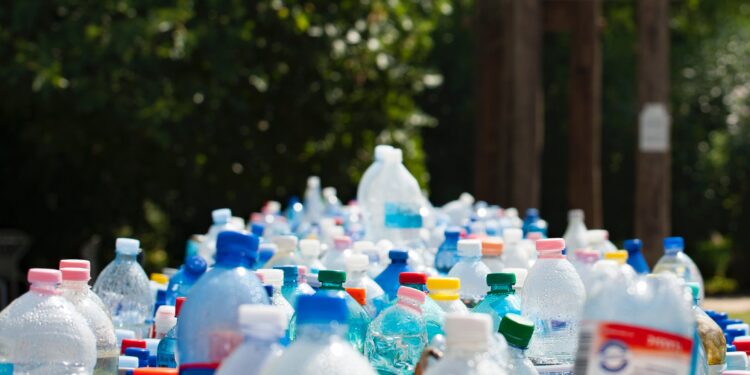In the wake of a global environmental awakening, it has become increasingly evident that the United States faces a plastic waste crisis of epic proportions. The convenience and versatility of plastic products have revolutionized the way we live, but this convenience has come at an alarming cost to our planet. As plastic waste continues to clog landfills, pollute waterways, and harm wildlife, there is an urgent need for innovative solutions that can help pave the way towards a more sustainable future.
The Plastic Problem
The United States is a major contributor to the world’s plastic problem, generating an estimated 35 million tons of plastic waste annually. A significant portion of this waste is single-use plastics, such as bags, bottles, and packaging, which end up in landfills or as litter. The environmental impact of this waste is far-reaching, from harming marine life to releasing harmful chemicals into the environment as plastics degrade.
The Environmental Toll
One of the most disturbing aspects of the plastic waste crisis is its impact on our natural ecosystems. Marine life, in particular, is bearing the brunt of plastic pollution. Millions of sea animals, including seabirds, turtles, and fish, die each year due to ingesting or becoming entangled in plastic debris. The toxins in plastic can also find their way into the food chain, potentially affecting human health.
Innovative Solutions
The good news is that innovative solutions are emerging to tackle the plastic waste crisis in America. Here are some noteworthy approaches:
Reducing Single-Use Plastics: An essential step in curbing plastic waste is to reduce our reliance on single-use plastics. Several cities and states have implemented bans or fees on plastic bags, while businesses are transitioning to more sustainable packaging options.
Recycling Advancements: Improving recycling infrastructure is crucial. Advanced recycling technologies, such as chemical recycling and mechanical recycling innovations, are being explored to increase the efficiency and effectiveness of plastic recycling.
Biodegradable Plastics: The development of biodegradable plastics offers a promising alternative. These plastics break down more easily and harmlessly in the environment. Companies are investing in research to create biodegradable materials that can replace conventional plastics.
Circular Economy Initiatives: Adopting a circular economy approach promotes the recycling and reuse of plastics. It involves designing products with recyclability in mind, as well as creating systems that encourage the return and repurposing of plastic products.
Plastic-Eating Microbes: Scientists are exploring the use of microbes that can break down plastic waste more efficiently. These “plastic-eating” microbes have the potential to reduce the longevity of plastic waste in landfills.
Consumer Education: Raising awareness among consumers about the impact of their choices is a crucial aspect of the solution. Encouraging individuals to reduce, reuse, and recycle can significantly contribute to reducing plastic waste.
Legislation and Policy Changes: Advocacy for stronger environmental regulations and policies can make a significant impact. Pressure from informed citizens and organizations can lead to changes in the way plastic is produced, used, and disposed of.
The Way Forward
Addressing the plastic waste crisis in America is a multifaceted challenge that requires the collective efforts of individuals, businesses, and governments. While innovative solutions are emerging, the real change will come when these solutions are adopted on a large scale.
As responsible consumers, we can reduce our plastic footprint by choosing reusable products, supporting businesses that prioritize sustainability, and participating in community clean-up efforts. By making conscious choices, we can contribute to a sustainable future.
Businesses have a significant role to play by reevaluating their packaging materials, investing in sustainable practices, and adopting circular economy principles. Governments should continue to push for stricter regulations and policies that discourage single-use plastics and promote responsible waste management.
In conclusion, the plastic waste crisis in America is a pressing issue that demands immediate attention and action. It is our collective responsibility to protect our environment and safeguard the planet for future generations. Through innovative solutions, increased awareness, and concerted efforts, we can work towards a more sustainable future, free from the shackles of plastic waste. The time to act is now, and together, we can make a difference in the fight against plastic pollution.













Recent Comments